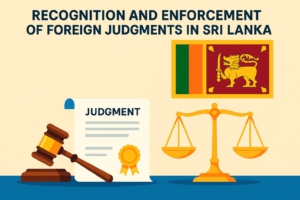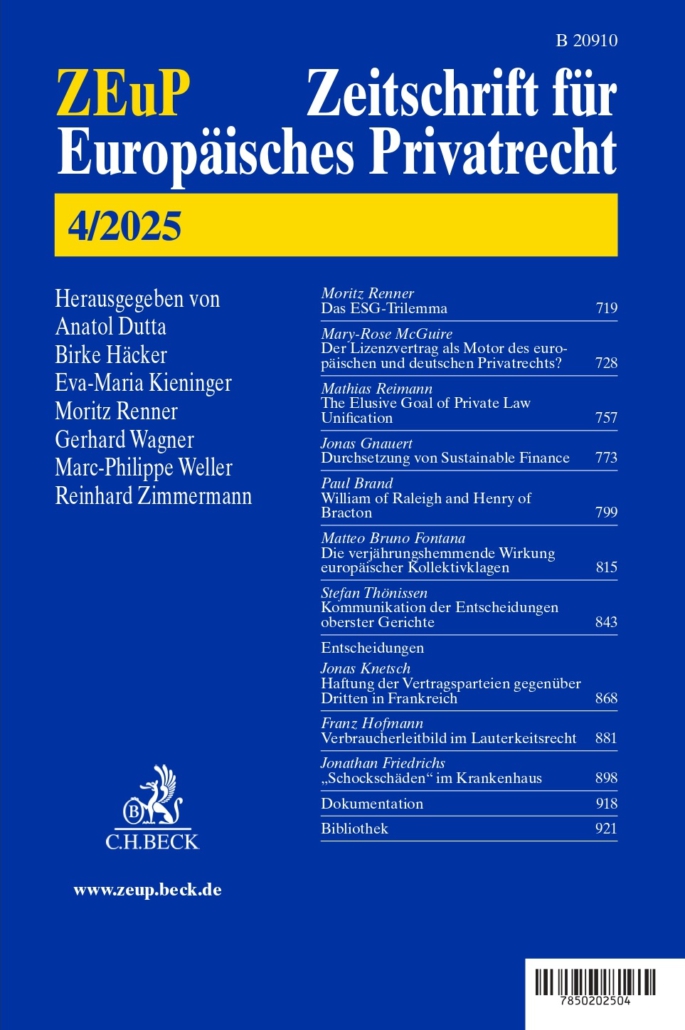Views
Brexit and PIL – Belgian Supreme Court confirms the application of the 2005 Hague Convention to jurisdiction clauses designating UK courts concluded after 1 October 2015
By Guillaume Croisant (Linklaters LLP)
The United Kingdom deposited an instrument of accession to the Hague Convention of 30 June 2005 on Choice of Court Agreements (the “Convention”) on 28 September 2020. This instrument of accession became effective after the Brexit’s transition period, on 1 January 2021, and gained binding force within the UK legal order following the adoption of the Private International Law (Implementation of Agreements) Act 2020.
As many readers will be aware, a controversy exists regarding the temporal scope of the Convention. It applies to exclusive choice of court agreements concluded after its entry into force for the State of the chosen court and to disputes initiated after its entry into force for the State of the seized court. EU Member States have been bound by the Hague Convention since its approval by the European Union on 1 October 2015, but what about the UK after its withdrawal from the EU?
According to a first viewpoint, reflected in the UK’s instrument of accession, ” In accordance with Article 30 of the 2005 Hague Convention, the United Kingdom became bound by the Convention on 1 October 2015 by virtue of its membership of the European Union, which approved the Convention on that date.”
Conversely, under a second viewpoint (apparently shared by the European Commission in its ‘Notice to stakeholders – Withdrawal of the United Kingdom and EU rules in the field of civil justice and private international law’ dated 27 August 2020, p. 9), the Convention could only apply after the United Kingdom’s ‘independent’ ratification, which occurred on 1 January 2021. If this second perspective were accepted, jurisdiction agreements concluded before this date would not benefit from the mutual recognition system established by the Convention.
In a judgment (in French) dated 27 March 2025 (C.24.0012.F), the Belgian Supreme Court (Court de Cassation/Hof van Cassatie) ruled in favour of the first viewpoint, holding that “The Hague Convention of 30 June 2005 has been applicable to the United Kingdom as a bound State, owing to the European Union’s approval of the Convention, from 1 October 2015 until 31 December 2020, and as a contracting party from 1 January 2021. The argument, in this regard, that the United Kingdom ceased to be bound by the Convention following its withdrawal from the European Union on 1 February 2020, is without legal basis.”
Foreign Sovereign Immunity and Historical Justice: Inside the US Supreme Court’s Restrictive Turn in Holocaust-Related Cases

By Livia Solaro, PhD candidate at Maastricht University, working on the transnational restitution of Nazi-looted art
On 21 February 2025, the US Supreme Court issued a ruling in Republic of Hungary v. Simon,[1] a Holocaust restitution case with a lengthy procedural history. Delivering this unanimous decision, Justice Sotomayor confirmed the restrictive approach to cases involving foreign states inaugurated in 2021 by Federal Republic of Germany v. Philipp.[2] In light of the importance of US practice for the development of customary law around sovereign immunity,[3] and its impact on questions of historical justice and transnational accountability, the Simon development deserves particular attention. Read more
Legislative direction for recognition of foreign judgments in Sri Lanka: A new sign-post in the private international law landscape
This post was written by Rose Wijeyesekera, Professor of Private and Comparative Law, Chair / Department of Private and Comparative Law – Faculty of Law, University of Colombo

Introduction
Sri Lanka (formerly known as ‘Ceylon’) is an island in the Indian Ocean, and is home to a total population of 21,763,170, consisting of Sinhalese 74.9%, Tamils 15.4%, Muslims 9.3%, and 0.5% consisting of others such as Veddhas, Burghers, and gypsies.The legal system of this island nation is a unique blend of native laws and the laws that were placed by the colonial powers from 1505 to 1947, when the country gained independence. Since then, Sri Lanka has been a democratic republic and a Unitary State governed by a constitution. The Sri Lankan legal system is primarily based on Roman-Dutch law, inherited from its colonial past under the Dutch, and English common law introduced by the British colonial rulers. Apart from these two, the legal system incorporates elements of Kandyan law (representing indigenous customs of the Sinhalese), Tesawalamai(customary laws of the Tamils of the Northern province of the country) and Muslim law. These personal laws apply in matters of personal law, such as marriage, divorce, and inheritance, depending on the community to which an individual belongs. All Muslims including the sub-categories such as Moors and Malays, are governed by Muslim Law in their personal matters, while Kandyan Sinhalese (a minority of the Sinhalese who hail from “Kandyan Provinces” / the hill country, are governed by Kandyan Law. These customary laws bear a territorial and/or a religious nature. Most of these laws are enacted, but some remain open leaving room for judicial interpretation. The court system in Sri Lanka is structured hierarchically and is designed to ensure justice through a combination of traditional and modern legal principles. The system comprises the Supreme Court at the apex, the Court of Appeal, Provincial High Courts, District Courts, Magistrate Courts, and tribunals such as Labour Tribunals, Quazi Courts, and Mediation Boards. Read more
News
LEX and FORUM VOLUME I /2025
The sweeping pace of technological advancement and the accelerated transition to the digital realm are generating novel and complex challenges for the law. Established legal frameworks are increasingly being tested within the digital environment, where cutting-edge technologies — such as digital platforms and artificial intelligence — have come to play a decisive role in both social and economic activity.
Although the European Union may not yet have attained its full technological maturity, it stands at the forefront of confronting the legal implications of the digital era. The Union’s legislative agenda seeks to maintain a delicate equilibrium between, on the one hand, promoting innovation and technological development, and, on the other, safeguarding the fundamental rights of individuals while ensuring transparency and accountability among digital service providers. Read more
Special Issue: Proceedings of the Bremen Conference on Informed Consent to Dispute Resolution Agreements
The German Law Journal has published a Special Issue featuring the proceedings of the international conference on Informed Consent to Dispute Resolution Agreements, held in Bremen on 20–21 June 2024 (see our earlier announcement here).
Edited by Gralf-Peter Calliess and Nicholas Mouttotos of the University of Bremen, the special issue brings together contributions from leading scholars in private international law, international civil procedure, and international arbitration. Contributors include: Symeon C. Symeonides, Nancy S. Kim, Gralf-Peter Calliess, Frederick Rieländer, Peter McColgan, Laura E. Little, Kermit Roosevelt III, Sören Segger-Piening, John F. Coyle, Hannah L. Buxbaum, Marta Pertegás Sender, Stephen Ware, Stefan F. Thönissen and Nicholas Mouttotos.
The collection addresses a central tension in modern dispute resolution: how to reconcile party autonomy in forum and choice-of-law agreements with the requirement of consent, and how informed should consent be, particularly where such agreements are embedded in standard-form contracts affecting weaker parties such as consumers and employees.
The issue encompasses perspectives from both the United States and the European Union, examining questions of constitutional fairness, access to justice, and the legitimacy of contractual self-determination. Contributions trace the historical development of party autonomy, critique the adequacy of existing consent models, examine their outward abandonment while also exploring comparative regulatory approaches to protecting vulnerable contracting parties.
The special issue is available in the German Law Journal, Volume 26, Special Issue 5, and the editorial can be found here. The German Law Journal is a pioneering (Gold) open-access, peer-reviewed forum for scholarship and commentary on comparative, European, and international law, offering free and unrestricted online access to its publications since 1999.
ZEuP – Zeitschrift für Europäisches Privatrecht 4/2025
A new issue of ZEuP – Zeitschrift für Europäisches Privatrecht is now available and includes contributions on EU private law, comparative law and legal history, legal unification, private international law, and individual European private law regimes. The full table of content can be accessed here: https://rsw.beck.de/zeitschriften/zeup. 


